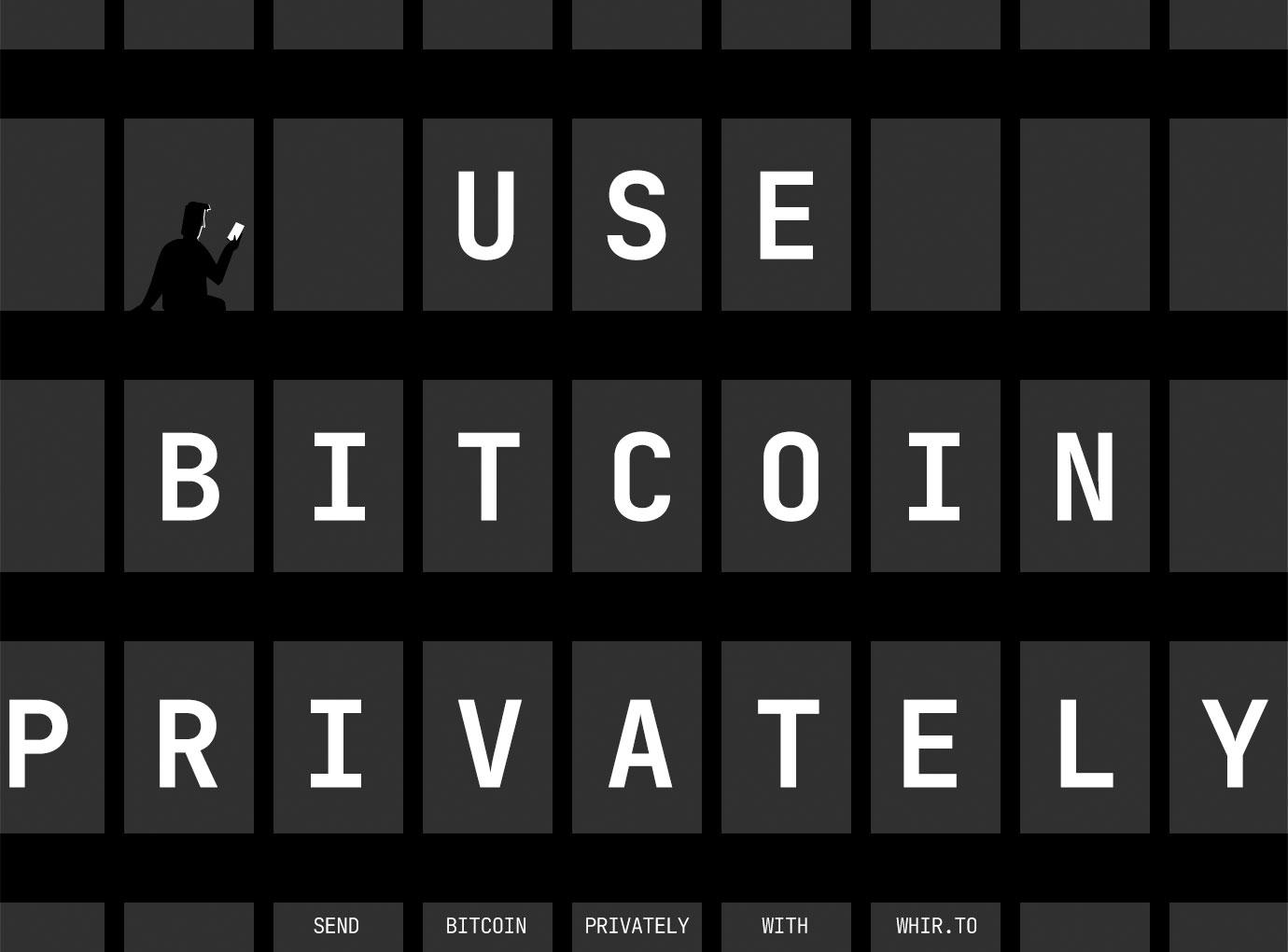Indeed, using Bitcoin privately doesn't need to be complicated.
Unless you are technically savvy, a cyber security expert or have been in Bitcoin for some time, the privacy of Bitcoin can seem difficult at the first glance.
While everyone knows now that Bitcoin is not anonymous, but pseudonymous, people also know that it is possible to improve the level of anonymity and hence privacy thanks to some techniques and tools. In the following few lines, we will explore some of the easiest techniques one can employ to use Bitcoin privately, without having to dive too deep into the technicalities.
Using appropriate wallets
One of the best things anyone who is concerned about the privacy of their bitcoins can do, is to use the appropriate wallet. That however does not only mean wallets that are not connected to any centralized exchange. First and foremost, it means usage of privacy-oriented wallets such as Samourai Wallet or Wasabi Wallet.
The latter was for instance upgraded in June to Wasabi 2.0. Thanks to this update, the privacy settings of Wasabi improve mostly due to the fact that they are now integrated to the wallet by default. This means that from the moment you start using the anonymous Bitcoin wallet, it uses CoinJoin to help you stay anonymous. It also does this frictionlessly and effortlessly, being one of the best options especially for Bitcoin newbies.
Do not use KYC exchanges
Prevention is better than cure. A commonly known saying that can be easily applied to this scenario. Know-your-customer is a rather normal practice for almost all the financial companies in the world. This also includes cryptocurrency exchanges, especially those that are centralised and can be easily contacted by authorities.
Buying anything on KYC exchanges means that you are giving up the right of privacy, usually for the convenience of the purchase. However, it is much simpler to just buy bitcoins anonymously without KYC, then going through the hustle of de-KYC-ing your bitcoins. Moreover, once the exchange has your KYC or any form of ID, you can always be a suspect of owning Bitcoin, which is not an ideal scenario. Thus, getting to bitcoins anonymously, might be much simpler and reasonable.
There are different ways one can do that. ATM for instance is one of the rather common tools that is possible. Another, more global way is to buy through means of decentralized peer-to-peer exchanges such as HodlHodl or Bisq. Both of these anonymous bitcoin exchanges offer anonymity that can be hardly matched by exchanges like Binance, Kraken, Coinbase or others.
Would you like to mix Bitcoin or send your KYC'ed Bitcoin privately? Use Whir. A tool for an average Joe who wants to protect their privacy. Send Bitcoin privately, without KYC, using a CoinJoin transaction.
Own your private keys
While this does not completely fall under the category of using bitcoin privately, having your bitcoins stored in the right hardware wallet is incredibly important. If you acquired those bitcoins in a non-KYC manner and store the private keys in the form of seedphrase sensibly, there is a huge chance that no one could ever figure out that you own this asset (unless you brag about it too much).
Privacy is not only important when it comes to acquisition or purchases of bitcoins, but also its storage. Leaving them on any centralized exchange is not only safe, but in most cases, it is also not very private. While hot wallets are better in this scenario, the best option is to just get a hardware wallet such as Trezor or Ledger and store your stash there.
In either case, never store your non-KYC'ed Bitcoins in the same wallet as the KYC'ed ones!
Use Lightning Network
In our previous articles on maintaining bitcoin privacy, we have mentioned Lightning Network and its benefits for privacy on several occasions. This Layer-2 solution offers better privacy thanks to its off-chain settlement. This means that the Lightning Network transactions of the users do not get permanently written down into the blockchain.
Using LN is also very easy, since the only thing that the user needs to have is a wallet that supports these payments. Number of these wallets as well as people accepting LN payments is increasing rapidly and so is the popularity of this whole Layer-2 solution.
Yet, it needs to be stated that Lightning Network should mostly be used for smaller payments and settlements. People still report cases of larger Bitcoin transactions over Lightning Network that do not go according to plans and can in some cases end up lost. Thus, Lightning Network, while having its undeniable benefits in not only the privacy, but also the speed and cost-effectiveness of Bitcoin transactions, should be used with caution.
Whir provides a suitable solution
If you want a way that combines several privacy features together, while mixing Bitcoin or sending Bitcoin to someone, using Whir might be worth a shot. Whir uses a CoinJoin technology to improve the privacy of users, to make sure that anyone and everyone can get to their bitcoins or satoshis without others knowing about it.
Transactions over Whir are comparable to the usage of Lightning Network, with one big difference. There is no need to use any special wallet or download any special software to operate to be able to use it. Whir works fully anonymously and online for anyone, who wants to send and receive bitcoins in a private manner.
Moreover, the user experience as well as the current interface is so simple that it is literally like sending any Bitcoin transaction. This means that nothing changes and once you know how to send a Bitcoin transaction (pretty simple process), you can use Whir without any hurdles.
Conclusion
Privacy in Bitcoin is achievable, but it needs to be done cautiously and deliberately. There are some steps that people can do to use bitcoin privately, with some being more complicated, while others, being pretty simple. And Whir is one of those simple solutions.
––
If you liked this article, please share it on Twitter.
Disclaimer: This article does not serve as a piece of financial advice or encouragement and inducement for the usage of Bitcoin and other cryptocurrencies. Its primary role is informative, explanatory, and educational. The readers have to decide themselves whether to use or not to use these types of services.


